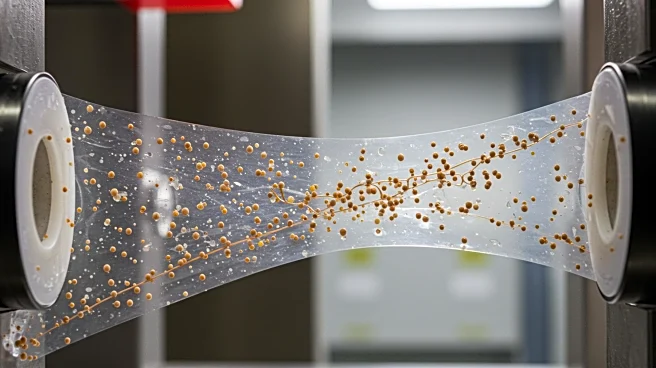What's Happening?
Recent research has focused on the stress-strain behavior of poly(methyl acrylate) microparticle-based polymers, utilizing optical microscopy to observe structural changes during elongation. The study involved synthesizing microparticles through soap-free emulsion polymerization, followed by detailed analysis using field-emission scanning electron microscopy and differential scanning calorimetry. The research aimed to understand the deformation characteristics of these films, revealing that microparticles exhibit non-affine deformation under stress, which is influenced by the interpenetration of polymer chains between particles.
Why It's Important?
Understanding the mechanical properties of microparticle-based films is crucial for advancing materials science, particularly in applications requiring durable and flexible materials. This research provides insights into the toughening mechanisms of these films, which could lead to innovations in manufacturing processes and the development of new materials with enhanced performance. Industries such as packaging, automotive, and electronics could benefit from these findings, potentially leading to more sustainable and efficient products.
What's Next?
Future research may focus on optimizing the synthesis process to enhance the mechanical properties of microparticle-based films. Additionally, exploring the application of these materials in various industries could lead to practical implementations. Collaboration between researchers and industry stakeholders might accelerate the development of new products utilizing these advanced materials.
Beyond the Headlines
The study highlights the importance of understanding microscale structural changes in materials, which can have significant implications for recycling and sustainability. By improving the durability and flexibility of materials, this research contributes to the broader goal of reducing waste and promoting environmentally friendly practices in manufacturing.








